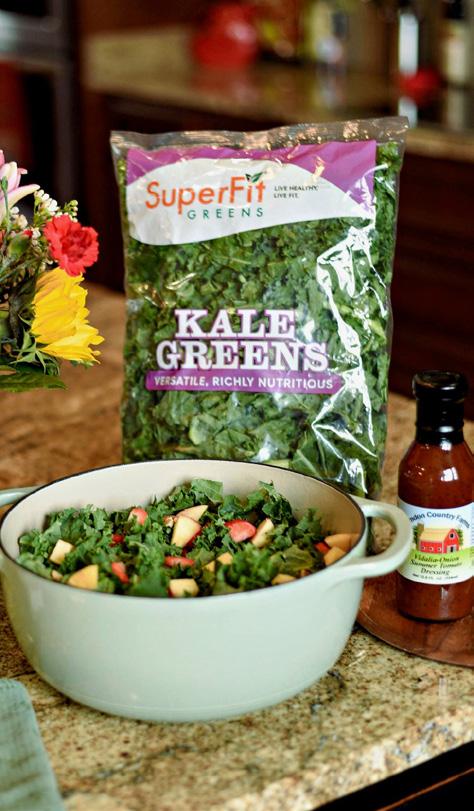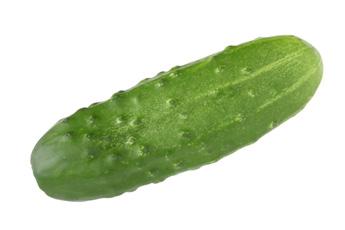










by

Last summer, we announced the exciting news that AMC was expanding its offerings to Atlanta— and, now, we’re thrilled to share more about that incredible journey! This expansion marks a significant milestone for us, and we can’t wait to dive into why we chose this dynamic city and how that decision is shaping the future of our company.
In this issue of SOURCED, you’ll get an inside look at our expansion into Atlanta—from our two state-of-the-art facilities and the services we will offer to the unique qualities of Georgia’s rich soil and what makes it perfect for growing some of the finest produce, including world-famous Georgia peaches and a special variety of onion. We’ll also explore what makes Atlanta such a thriving hub for business and agriculture, and you’ll get to meet the incredible AMC team that is leading the way in this new market.
As we explore why Atlanta was the perfect fit for our expansion, join us to learn what makes this city so special and how we’re growing—not just as a company but also through the relationships we’re building and the opportunities we’re creating.
Welcome to Atlanta. Let’s grow together!
Anton J. Marano
Damon Marano Chief Executive Officer President and Chief Business Officer

The Georgia Department of Agriculture was established in 1874 as the nation’s first state department of agriculture. It supports Georgia’s $74B agricultural industry, aiding farmers, ensuring food safety, and protecting consumers.

A produce revolution is unfolding in the Southeast, fueled by increasing demand—from both consumers and businesses—for fresh, high-quality produce. Atlanta, with its access to a robust distribution network, is the perfect location to source and supply fresh produce efficiently. Atlanta’s strategic location also offers unmatched logistical advantages.

Georgia has had a 4.2% increase in population since 2020.
In addition, the city’s thriving retail and food service industries, including major grocery chains Publix and Kroger, make it ideal. By expanding here, AMC can play a pivotal role in supporting a surge in demand while strengthening relationships with growers and customers.
Georgia’s State Farmers Markets are responsible for more than $1B in fresh fruit and vegetable sales, annually.

THE PEACH INDUSTRY IN GEORGIA IS EXPECTED
Beyond its agricultural strengths, the area’s rapid population growth and economic diversity make it an ideal market for expansion. In fact, over the last five years, Atlanta has emerged as a top destination for major companies seeking to expand or relocate.
Along with its strategic location, a pro-business environment and strong infrastructure continue to attract a wide variety of industries. Some notable companies that have established or expanded their presence include Duracell, Papa John’s, AIG, Delta Air Lines, Home Depot, AT&T, Coca-Cola, and many others.

Finally, the diversity of Atlanta’s communities provides endless opportunities for new flavors, cuisines, and cultural influences. Combined, all these attributes make Atlanta the perfect environment for AMC to innovate and grow in.

IN 2024, GEORGIA’S FRUIT PRODUCTION TOTALED 243,600 TONS,

GEORGIA CONTINUES TO RANK AMONG THE TOP AGRICULTURAL PRODUCERS IN THE U.S. FOR SEVERAL FRESH PRODUCE COMMODITIES:






Freight Forward Distribution Network
Georgia: 15 DC, deliveries 7 days a week
Carolinas: 17 DC, deliveries 6 days a week
Florida: 30 DC, deliveries 7 days a week
Texas: 5 DC, deliveries 3 days a week
Alabama: 1 DC
Population in 500-mile radius
approx 86 million
approx 88 million
174 million
Approximate Number of Independent stores in the
6,000
How does dirt make an onion sweet?
Low sulfur, low pyruvic acid = sweet flavor
A little magic happens beneath the soil in Georgia that makes it the ultimate home for the world-renowned Vidalia onion. What makes this dirt extra special? It’s the mild climate and soil that’s got just the right recipe—less sulfur, a perfect blend of minerals, and just the right amount of moisture and drainage. The result? Vidalia onions, with a flavor that’s more dessert than vegetable!



The dirt really does make the difference when it comes to growing the best. These sweet flavorful onions are grown in just a few select counties in Georgia.
That’s not just a tradition—it’s the law, the Vidalia Onion Act of 1986. The act states that Vidalias can only be grown in a certain region and only onions grown in this area can be legally sold under the Vidalia name.

The Vidalia Onion Act of 1986, designates only 20 counties as the official Vidalia–onion-growing region.

The Vidalia onion crop is a
$ 150M industry
that supports farmers, packers, and shippers across Georgia.
Two counties alone grow nearly
90%
of all Vidalia onions produced across Georgia.
The Vidalia onion was named Georgia’s official state vegetable in
Georgia’s farmers grow Vidalia onions on more than
14,000
Scan the QR code to explore Chef Fred’s Vidalia onion recipe.









by Rick Van Arnam Vice President of Leadership, Team Development, and Strategy
I believe the greatest minds that focus on big, strategic ideas have one thing in common: They make simple what most make complex.
Take acquiring a company, for example. Most often, the reason is rooted in a numbers-based explanation. The numbers end up in a PowerPoint presentation with fancy charts and graphs depicting a return on investment, how market share increases, and how shareholder value or owner equity improves. Even with such analysis, and assuming it’s objectively accurate, executive teams should still ask, “Should we buy that company?”
But, where does the team look for an answer?
Simon Sinek—whose famous “How Great Leaders Inspire Action” TED Talk has reached nearly 70M views—would tell the team to look at its why: its fundamental reason for the company’s existence. He’s a brilliant guy who doesn’t prove his brilliance by telling you how much he knows; he’s brilliant because he shares simple ideas that are practical for everyday consumption. He would tell you to look at your why in deciding to acquire or not acquire.
Jim Collins, whose research into what makes great companies tick led to his publication of Good to Great (Harper Business, 2001) and Built to Last (Harper Business, 1994), writes about the importance of a company’s core purpose beyond making money. He believes that a good core purpose guides executives in what they should and shouldn’t do.
AMC’s Damon Marano says, “We didn’t choose Atlanta; Atlanta chose us,” meaning a family-owned business distributing produce in need of what he calls, “relationship entrepreneurship.” Beyond this commonality, we saw a larger opportunity to grow our core purpose—to create better life opportunities for our employees and their families. That really became our why: if we grow people, we grow the company.
With that question resolved, what follows is the question of how. How do you take a culture that has been developed and stewarded for three generations in Chicago and instill it in, as Damon says, “a business we cannot drive to everyday” a thousand miles away in Atlanta? The simple answer: bring to Atlanta what we’re doing in Chicago.

Lasting change won’t happen overnight, but we can quickly bring a mindset and an expectation for behaviors to Atlanta. And, by keeping things simple in the first few months, we’re relying on just a handful of mindsets and behaviors to gain a little momentum. These include:
This is a mindset adapted from the U.S. Army’s belief in “battlefield circulation”—a go-to practice of the most effective leaders. It simply means that our leaders value time circulating through the business asking questions, looking for opportunities (called GEMS), getting to know people, and modeling what we expect. A favorite question our leaders ask when using boots and ears to get to know our people and learn about their role is, “What does ‘right’ look like?” One can tell pretty quickly if a person “gets it,” has been coached properly, or has the right metric. Your ears will tell you.
I’m not sure where we found this word at AMC but it simply refers to business strategist Patrick Lencioni’s critical sixth question around creating clarity: “Who must do what?” Found in his book The Advantage, this mindset is about making sure the right people are in the right place wearing the right backpack. In traditional HR-speak, backpack refers to a person’s role and responsibility, and it encompasses Jim Collins’ exhortation, in Good to Great, to get the right people on the bus and the wrong people off the bus. We can often tell if a backpack is right if a person knows what “right” looks like and is able to meet that expectation on his or her own.
Lastly, we’ve emphasized a mindset that triggers action. We call it, having a sense of urgency. Why wait to fix something if you know it isn’t right? Make a decision. Get the right people involved fast. Be willing to make a mistake to pursue what right looks like. If you are wrong, make another decision. More important than the decision-making that accompanies the mindset is simply the mindset to act.
Using our boots and ears, focusing on backpacks, and acting with a sense of urgency have been our leading behaviors to meld the two locations into one Anthony Marano Company. They have pushed leaders in both locations out of their comfort zones and it has been fun. Consistent with our purpose, our mindsets and behaviors have already created better life opportunities for all.

At the end of the day, having an extended family in Atlanta where our people embrace our culture, want to grow, and strive to have some fun is a large part of our success. We are also realistic that this will take some time. Success won’t be measured by numbers on a PowerPoint slide—it will be felt by the excitement that comes when people grow and business growth follows.
“It
is exciting to have our people grow with us on this journey. Success will be measured by the excitement of the Atlanta team and their better life opportunities.”
—Damon Marano

Picture this: A warm summer evening . . . a relaxed and inviting experience where family and friends gather under the shade of towering oak trees or on a sprawling lawn . . . long, wood-planked tables, homemade lemonade, and fresh fruit cobblers cooling in the breeze . . . a taste of a southern summer with your . . .



Frying green tomatoes began as a way to use unripe tomatoes before first frost.


Peach cobbler gained popularity in the mid-1800s and now has many variations.






Mature okra can also be used to make rope and paper!




The practice of pickling watermelon rinds dates back to the American Civil War.

A cob of corn contains an average of roughly 800 kernels per ear.


The white, powdery substance on blueberries is called “bloom” and indicates freshness.




The annual availability of collard greens increased 43% between 2011 and 2020.













Once upon a time, God created a spot that was perfect for growing sweet peaches; we call it “the Peach State”—Georgia. Out of this very spot grew the Genuine Georgia Group: three guys born and raised in the same dirt where their greatgreat-grandfathers grew peaches 145 years ago. Genuine Georgia Group is a collection of fifth-generation Georgia peach growers. Based in Fort Valley, Will McGehee, Duke Lane, and Kent Hoots are working in the industry their great-greatgrandfathers started in the 1880s. The vision of the Genuine Georgia Group boys was to stay true to the heritage of yesterday while improving it with creativity and innovation. Their mission was simple: to spread the word in hopes that everyone in the world could taste the sweetest peaches ever grown. From peaches, they ventured into pecans and then to mandarins. The rest is history.



L. G. Herndon Jr Farms was founded in 1978 by Bo Herndon, who started with one small piece of land, a dream, and a tractor that Bo’s mother, Verna Herndon, convinced the bank to loan him. Today, 47 years later, it is a family-owned and operated business that farms more than 5,000 acres in southeast Georgia and supplies multiple packing facilities. They pride themselves in suppling our country with yearround produce, straight from farm to table.

Today, Herndon Farms is recognized as a leader in multiple categories in the produce industry and has no plans of slowing down. They have an excellent year-round program on both sweet onions and leafy greens (offering bulk and packaged greens) and grow some of the best sweet corn, shipping from May through July. Watermelons and cabbage round out the Herndon crops.

Hopkins Farms is a fifth-generation family farm rooted in the heart of south Georgia. What began generations ago has grown into a thriving operation led today by Carroll Hopkins and his sons, Ben and David, who proudly carry on the family legacy. They farm a mix of specialty crops and row crops, producing both spring and fall harvests each year, along with cattle.
The focus at Hopkins Farms is on quality and variety, growing five distinct types of tomatoes and fifteen different peppers alongside a strong tradition of Southern greens like collard, mustard, and turnip. These staples have been part of their fields for decades and remain at the heart of what they do.
Faith and family are what keep the Hopkins moving forward season after season. They are committed to delivering the freshest produce from their fields to your table, just like they’ve done for generations.



There’s nothing quite like a Georgia peach—the kind of sweet, juicy fruit that makes you feel like you’re sittin’ on a porch, sippin’ sweet tea and feelin’ the gentle breeze of a summer afternoon. What makes Georgia peaches so famous? Well, it’s that sun-kissed, just-right climate and the rich fertile soil that give these peaches that signature sweetness and tenderness.
It’s no wonder Georgia is known as the Peach State—the fruit is practically stamped into the soul of the state.

Flesh separates easily from the pit; great for eating, baking, and preserving.

Semi-Freestone
A mix of both, offering balance in texture and ease of handling.

Yellow
A mix of sweetness and acidity, perfect for cooking, baking, and fresh use.



Sweet and juicy, with pits that cling to the flesh; ideal for fresh eating and jams.

White

In Chinese culture, peaches symbolize immortality.

Peach Production Ranking
Georgia is the third-largest peach producing state in the U.S., with 24,800 tons in 2022.
Georgia’s Peach Acreage Peaches grow on 11,871 acres in Georgia.
The central part of Georgia grows 83% of the state’s production.
The southern region produces 17% of the state’s harvest.
Atlanta has




Anton J. Marano Chief Executive Officer
At AMC, we believe that true growth happens when we step out of our comfort zone—and our expansion into Atlanta is a perfect example of this mindset in action. A comfort zone is that familiar space where we feel safe and secure, but it can also become a place that limits our potential. When we stay too long in our comfort zones, we risk stagnation, holding back progress and growth. For years, we’ve built a solid foundation, but we knew that in order to truly evolve, we had to venture beyond what’s familiar. Atlanta, with its vibrant market, diverse community, and rapid growth, presented the ideal opportunity to challenge ourselves.

Expanding into a new city means embracing the unknown, navigating new obstacles, and learning to thrive in an unfamiliar environment. For me, and my brother Damon, as well as our entire team, this expansion is as much about personal growth as it is about business. By stepping outside our comfort zone, we’re opening ourselves up to new experiences, fresh ideas, and innovative ways of doing business—things we could never have discovered if we stayed comfortable. Atlanta’s booming economy, strategic location, and vibrant food scene perfectly align with our vision for the future. We can’t wait to see how this next chapter unfolds and shapes our journey. It’s all about pushing boundaries, taking risks, and seizing new opportunities—and we couldn’t be more thrilled to begin this next phase in Atlanta.
87% of high performers attribute their success to stepping outside their comfort zones, embracing challenges that foster personal and professional growth.
94% of employees say they would stay in their existing jobs if employers invested in reskilling them. This indicates that encouraging employees to step out of their comfort zones through learning can enhance retention.



We succeed by delivering kick-ass service, versatility, and knowledge to our customers and growers.

The Atlanta team is driven by one clear mission: helping everyone win—every step of the way. Who we are is defined by the Plan We Live By—more than a guide, it’s our unwavering commitment to delivering nothing short of excellence. With decades of industry experience, we combine kick-ass service, versatility, and knowledge to empower success. We don’t just meet expectations, we exceed them.


• Our kick-ass service means you’ll have a dedicated partner who knows the produce industry inside and out, always evolving and adapting to keep you ahead.
• Our versatility allows us to tackle any challenge, providing innovative solutions that add value at every turn—whether it’s optimizing your supply chain, creating seasonal promotions, or sourcing unique products.
• Our extensive knowledge of the produce industry allows us to offer tailored programs designed specifically for your business, whether you’re a multi-chain retailer or an independent store.











• 6 oz baby lettuce mix (also called spring mix or mesclun greens; or substitute arugula)
• 3 large ripe peaches, cut into wedges (light grilling optional)
• 1 pint fresh blueberries
• ½ cup toasted pecans, chopped roughly
• ½ small red onion, julienned
• ½ cup blue cheese (or goat cheese or a sharp cheddar), crumbled
• 2 Tbsp dark brown sugar
• 4 Tbsp apple-cider vinegar
• 6 Tbsp salad oil (any neutral oil like avocado or grapeseed, for example)
Toss salad ingredients together.
In a separate bowl, whisk together sugar and vinegar to dissolve sugar, then slowly whisk in oil to emulsify.

Pour vinaigrette dressing over salad ingredients.
Mix well.
MATCH EACH SEED (1–9) TO THE CORRECT FRUIT OR VEGETABLE BY WRITING A SEED NUMBER IN THE RED CIRCLE OF ITS MATCHING ROOM.




















